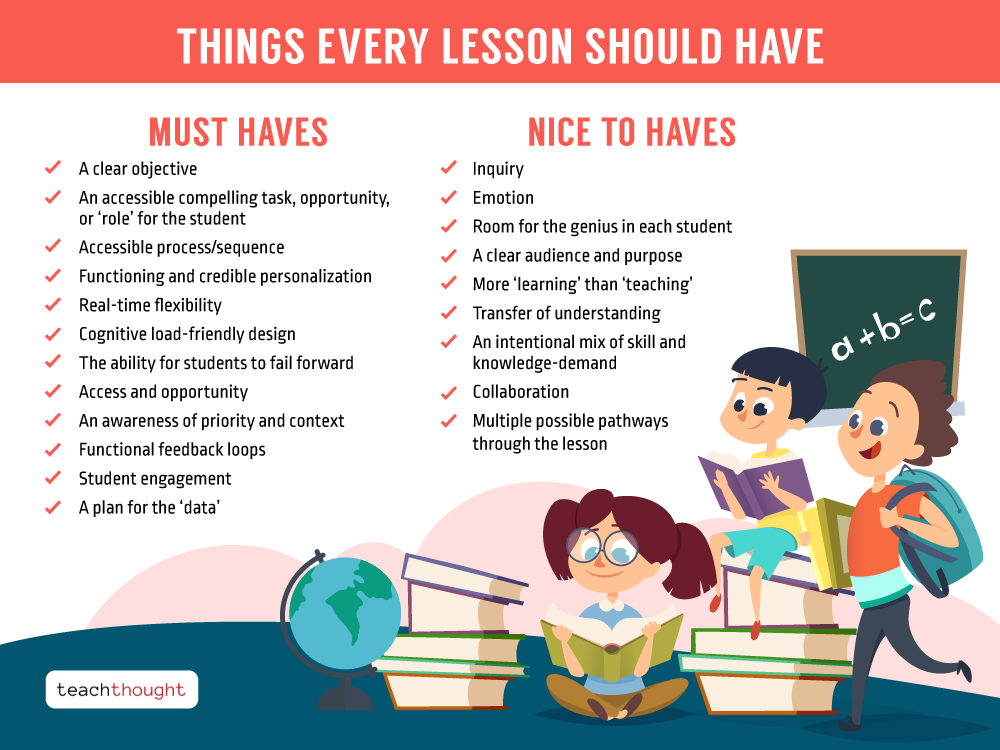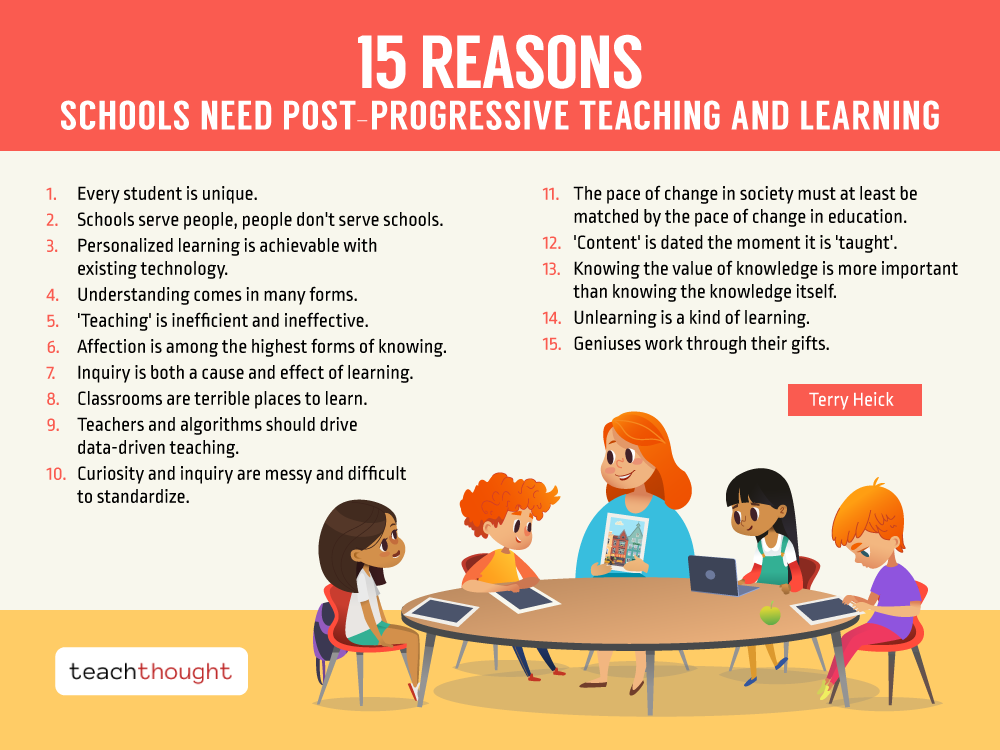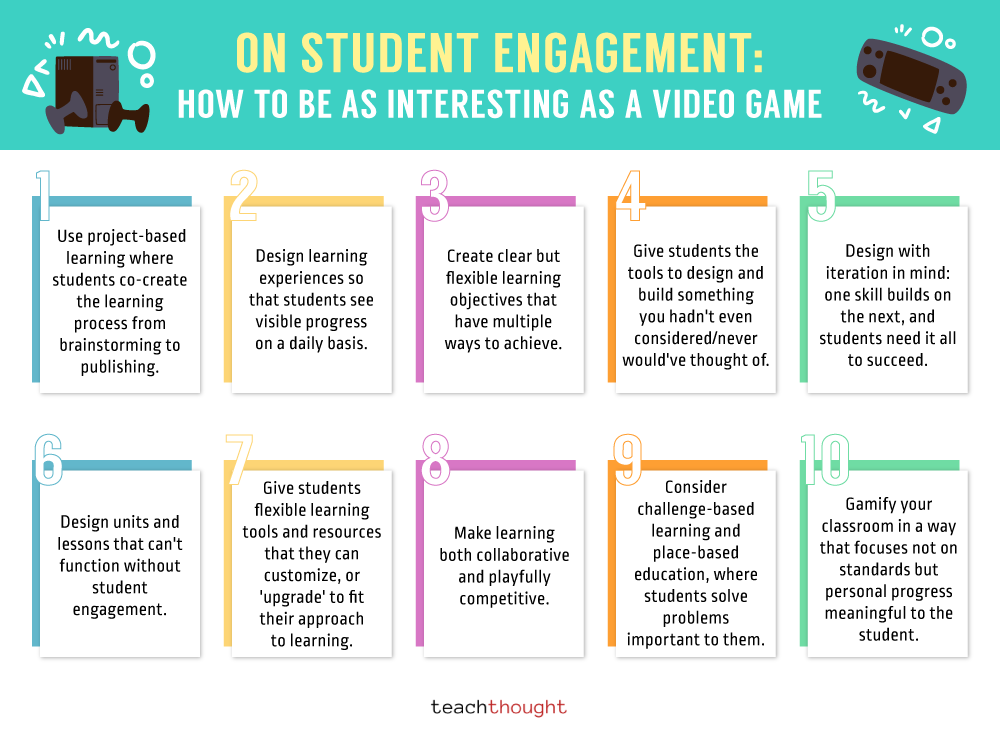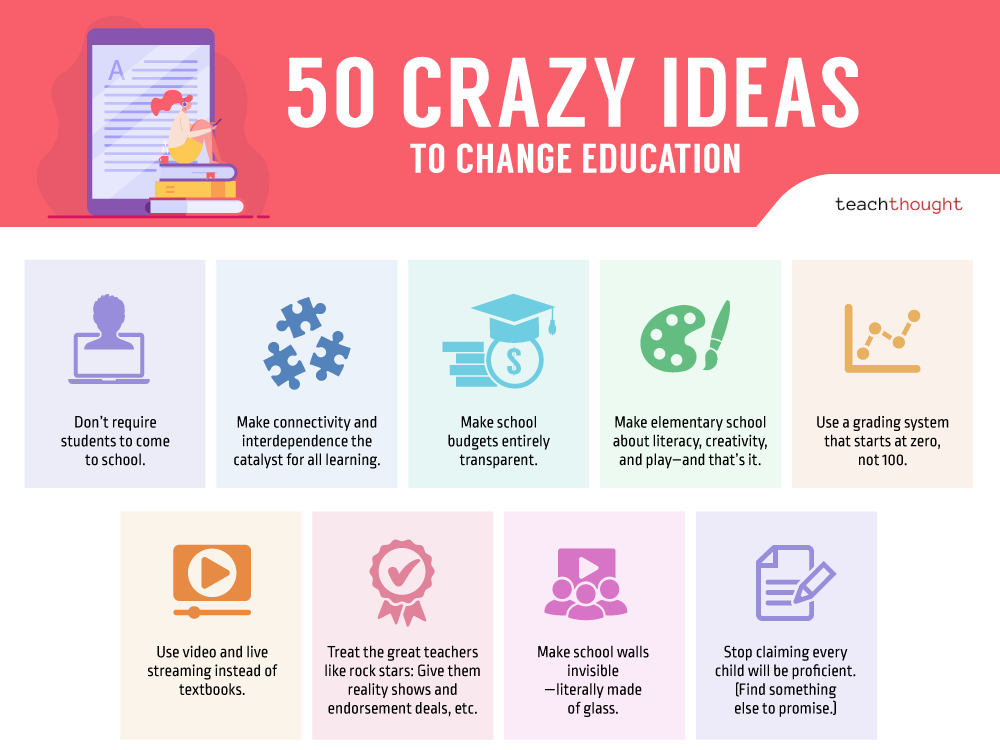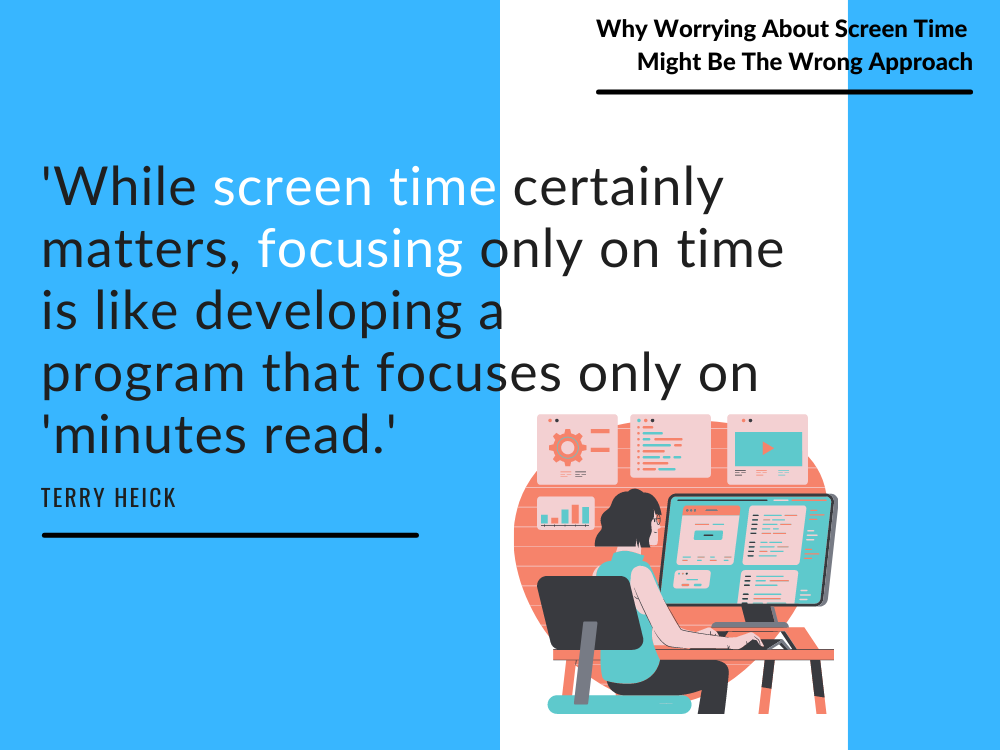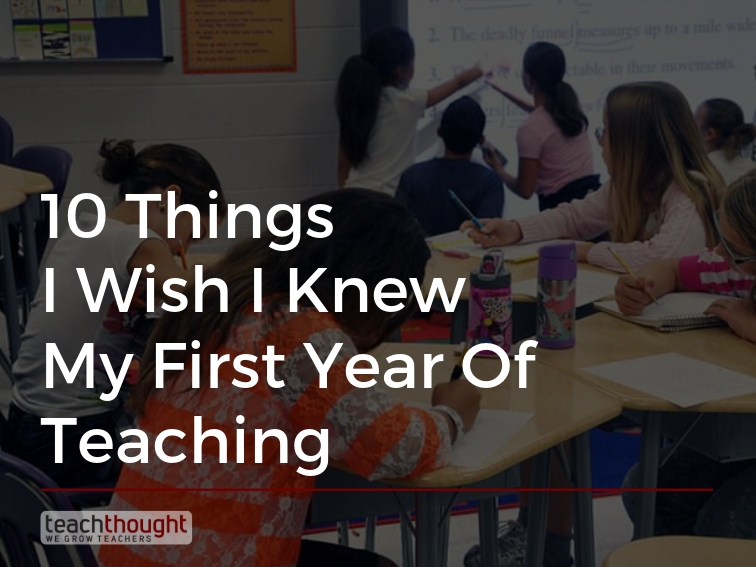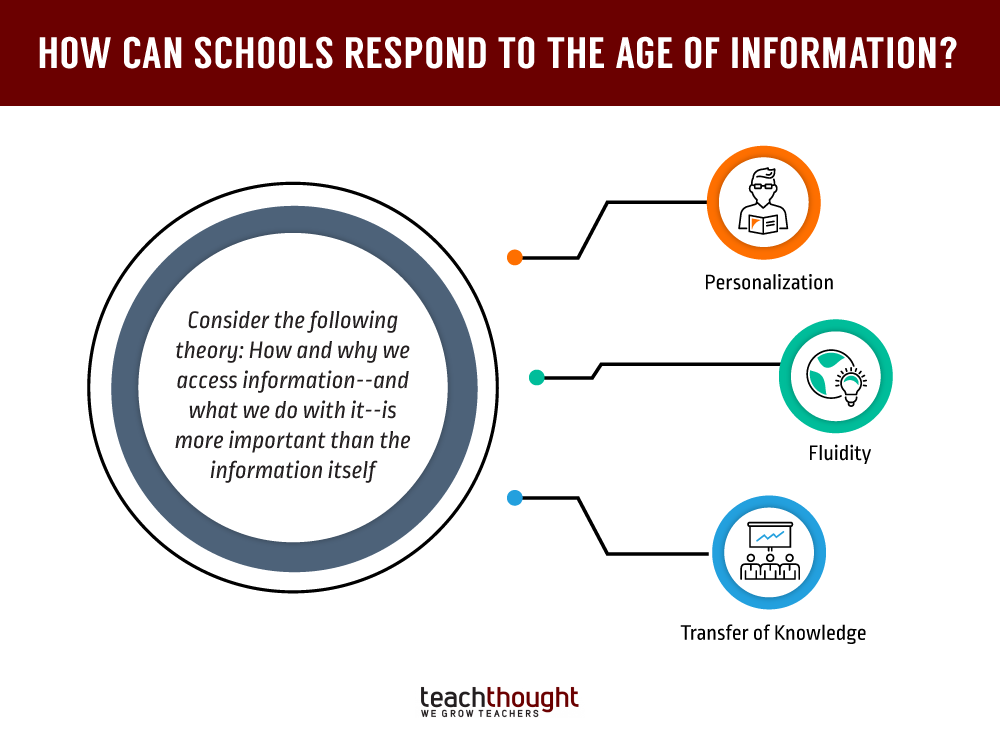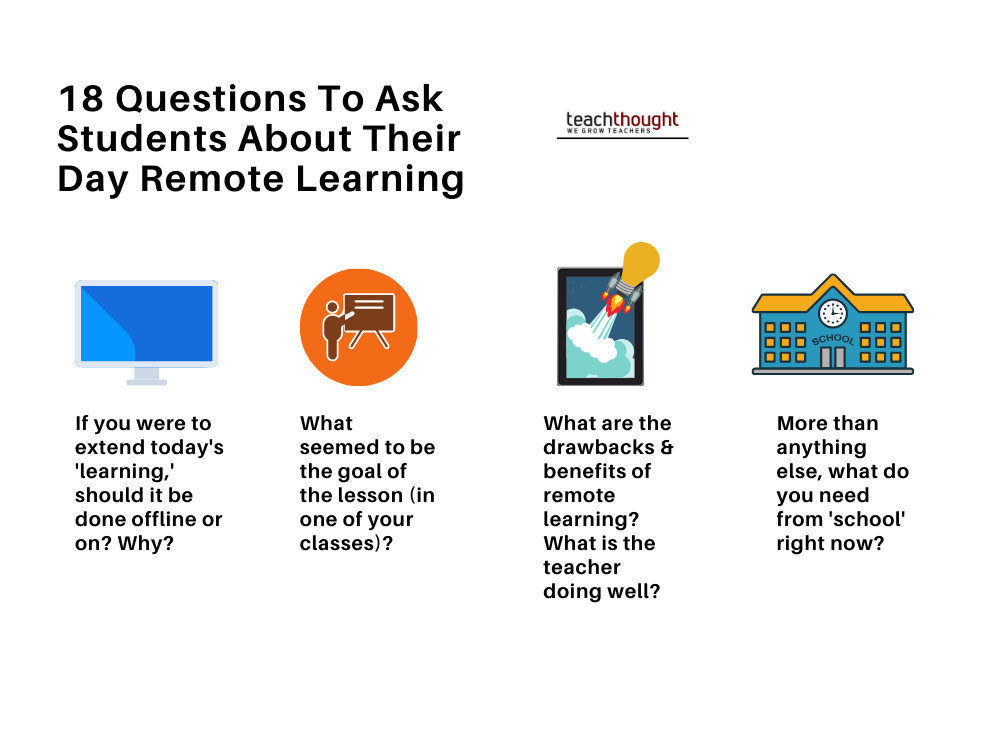Tag: Terry Heick
12 Things Every Lesson You Teach Should Have
Every lesson plan should have a clear and compelling–and accessible–role for each student during each moment of the lesson.
15 Reasons Schools Need Post-Progressive Teaching And Learning
Teachers are guides and coaches and content experts. A ‘post-progressive’ teacher would be empowered, not replaced.
10 Student Engagement Strategies That Empower Learners
One student engagement strategy is to offer diverse pathways through content–pathways students would have to ‘unlock’ to progress.
50 Crazy Ideas To Change Education [Updated]
Make any politician voting on legislation have to qualify for that right to vote by spending a certain number of hours in…
Why Worrying About Screen Time Might Be The Wrong…
While screen time certainly matters, focusing only on time is like developing a literacy program that focuses only on ‘minutes read.’
10 Things I Wish I Knew My First Year…
I learned that my classroom wasn’t *my* classroom. Rather, it was a learning space for children. The classroom belonged to them.
How Schools Can Respond To The Age Of Information
In the Age of Information, data has moved from singular places (here and there) to infinitely plural realities.
18 Questions To Ask Students About Their Day Remote…
What kinds of questions to ask students support what they’ve learned remotely and enhance their ability to apply it?

